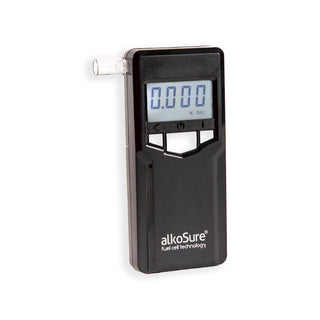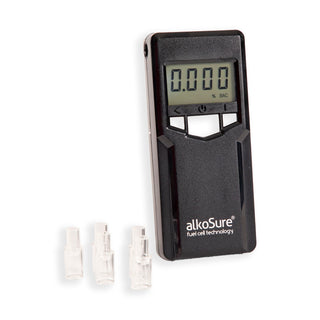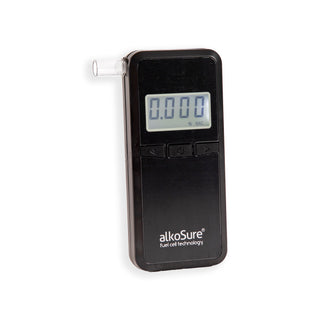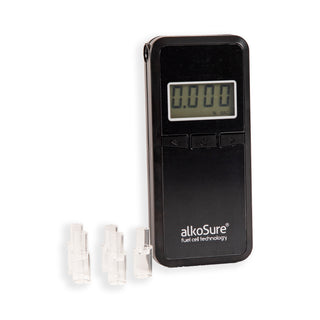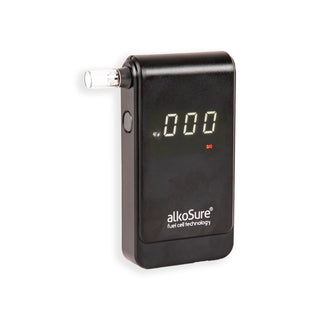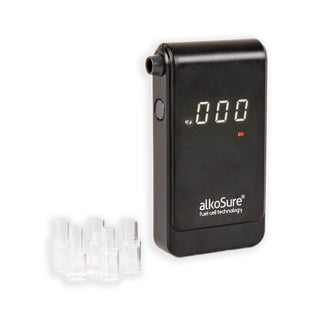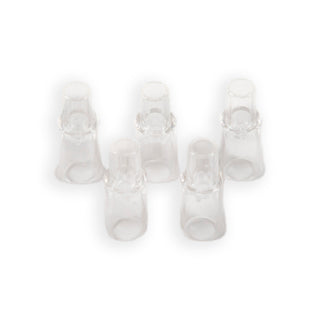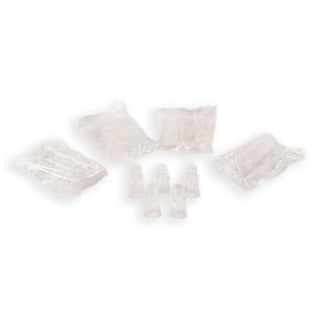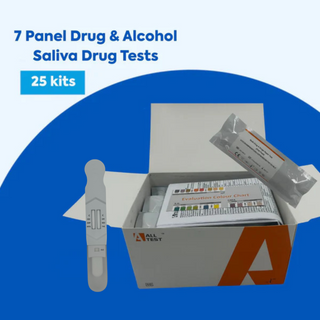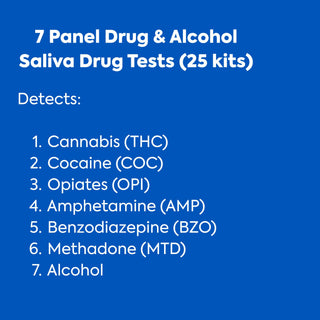Alcohol Testing Kits and Breathalyzers

24-Hour Express Shipping in UK

Quality Checked By Our Expert Team

Certified Drug & Alcohol Testing Kits

24-Hour Express Shipping in UK

Quality Checked By Our Expert Team

Certified Drug & Alcohol Testing Kits
Sort + Filter
Let customers speak for us
Breathalyzers and Alcohol Testing Kits in the UK
Are you aware of the importance of alcohol testing kits? In the UK, where the legal limit for driving is set at 35 micrograms of alcohol per 100 milliliters of breath, these kits are crucial. They not only ensure compliance with the law but also promote sound judgment and behavior.
The workplace is another arena where alcohol testing plays a vital role for various industries, promoting safety and productivity. As an illustration, a study conducted by the Considerate Construction Scheme in the UK found that 35% of construction industry workers have observed fellow workers being under the influence while at work, and a majority, 59%, have expressed apprehensions about the use of drugs and alcohol in the sector.
To make the most of breathalyzer testing, follow this concise step-by-step guide for effective alcohol testing.
How Breathalysers & Alcohol Testing Kits Work
Alcohol testing is essential to measure alcohol levels, with various sample options like hair, saliva, blood, and urine. Among these, breathalyzers take the lead as the most popular and effective choice.
Breathalyzers are straightforward and precise. You breathe into a disposable mouthpiece, causing a chemical reaction with the exhaled alcohol. This reaction results in a visible color change in the device's tube, which a color chart helps interpret.
While other kits use different samples, they share the same goal: assessing alcohol levels. Breathalyzers, known for their accuracy and user-friendliness, stand out as a top choice for alcohol testing.
Please do not hesitate to contact our friendly Drug Testing Kits UK Customer Service Team to discuss your specific needs!
Instructions for Using the Breathalyser Test Kit
To achieve the most accurate results with the Breathalyser Test Kit, follow these steps. Be sure to check the specific instructions for your particular model, as some variations may exist:
-
Before Testing: Instruct the subject to refrain from eating, drinking, smoking, or using tobacco products for at least 10 minutes before the test.
-
Device Preparation: Ensure that the Breathalyser is fully charged or has fresh batteries. Attach a new mouthpiece to the device.
-
Sample Collection: Ask the subject to take a deep breath and blow steadily into the mouthpiece until the device indicates the sample is complete.
-
Result Interpretation: The Breathalyser will analyze the breath sample and display the blood alcohol concentration (BAC) on the screen within seconds.
-
Post-Test: Dispose of the mouthpiece appropriately and record the result as per your workplace’s procedures.
When to Use Breathalyzers in the Workplace
Knowing when and how to use breathalyzers in the workplace is essential to maintain safety and compliance.
Common Workplace Scenarios Requiring Alcohol Testing
-
Safety-Sensitive Roles: Employees in safety-sensitive roles, such as truck drivers, heavy machinery operators, and healthcare professionals, may be subject to regular alcohol testing to ensure safety on the job.
-
Post-Incident Testing: After workplace accidents or incidents, alcohol testing may be required to determine if alcohol impairment played a role.
-
Random Testing: Some employers conduct random alcohol testing to deter alcohol consumption during working hours and promote a drug-free workplace.
The Importance of Breathalyser Tests in the Workplace
The Breathalyser Test Kit serves several critical functions in workplace safety and compliance:
-
Safety Assurance: Helps ensure that employees are not under the influence of alcohol while performing their duties, reducing the risk of accidents.
-
Regulatory Compliance: Supports adherence to workplace safety regulations and alcohol policies.
-
Pre-Shift Testing: Particularly useful in industries such as transportation, construction, and manufacturing, where sobriety is essential for safety.
Accuracy You Can Trust
Our Breathalyser Test Kits deliver precision you can rely on! Rigorous testing has shown:
-
92.5% accuracy for positive results: When our Breathalyser detects alcohol, it’s accurate 99% of the time.
-
100% accuracy for negative results: When no alcohol is detected, our kit is always correct.
Our kits are designed to perform flawlessly under various conditions, ensuring consistent and reliable results every time. Whether you’re testing in challenging environments or dealing with different factors that could affect results, the Breathalyser stands up to the task. Simply put, our test kits are a dependable choice for accurate alcohol detection in any setting.



 03333 704 704
03333 704 704


